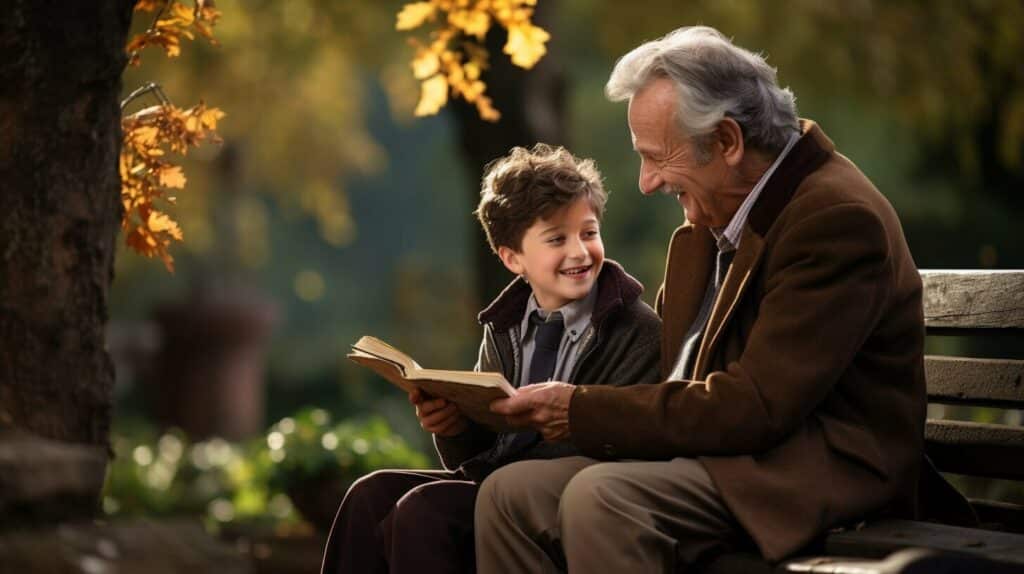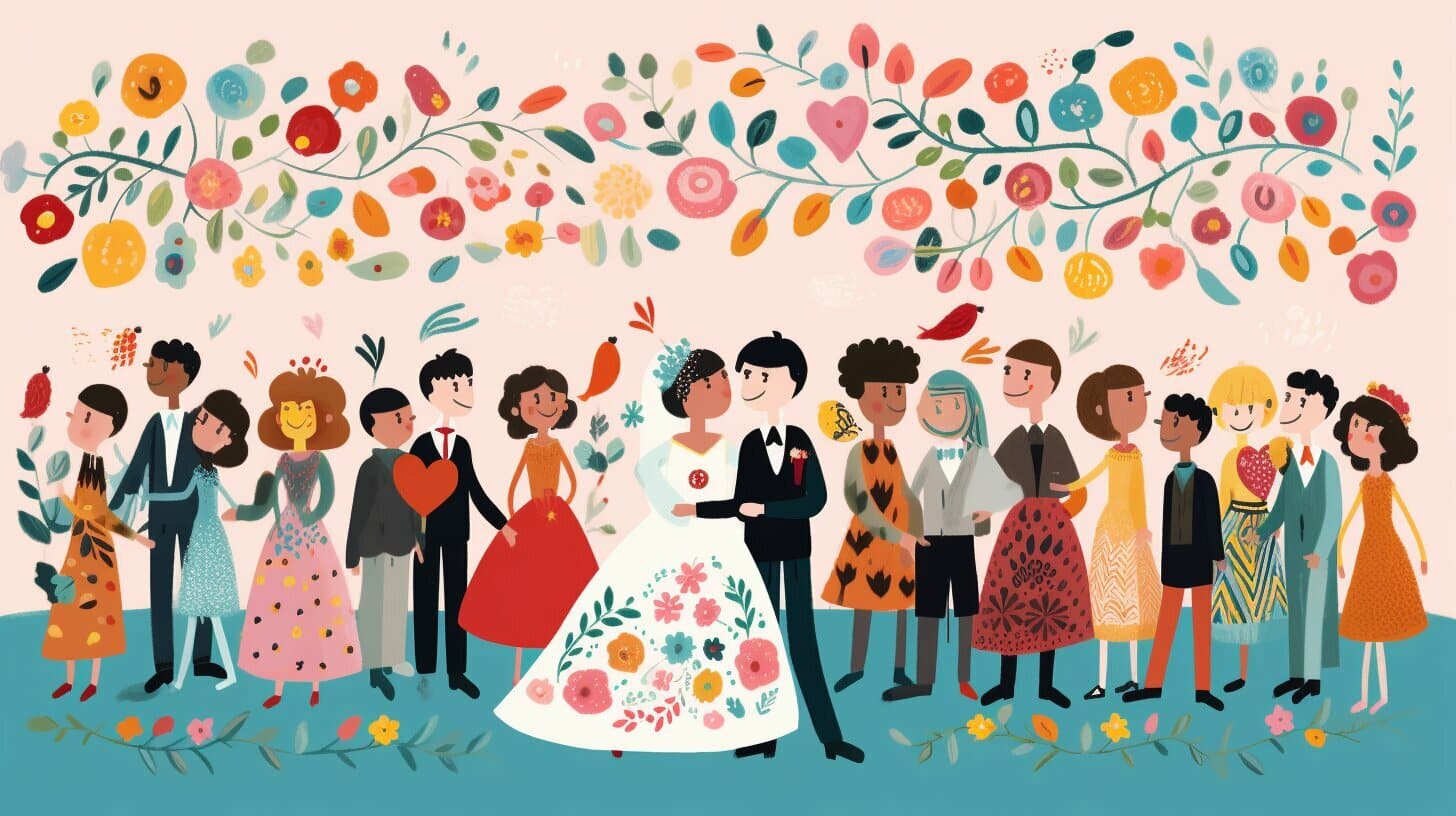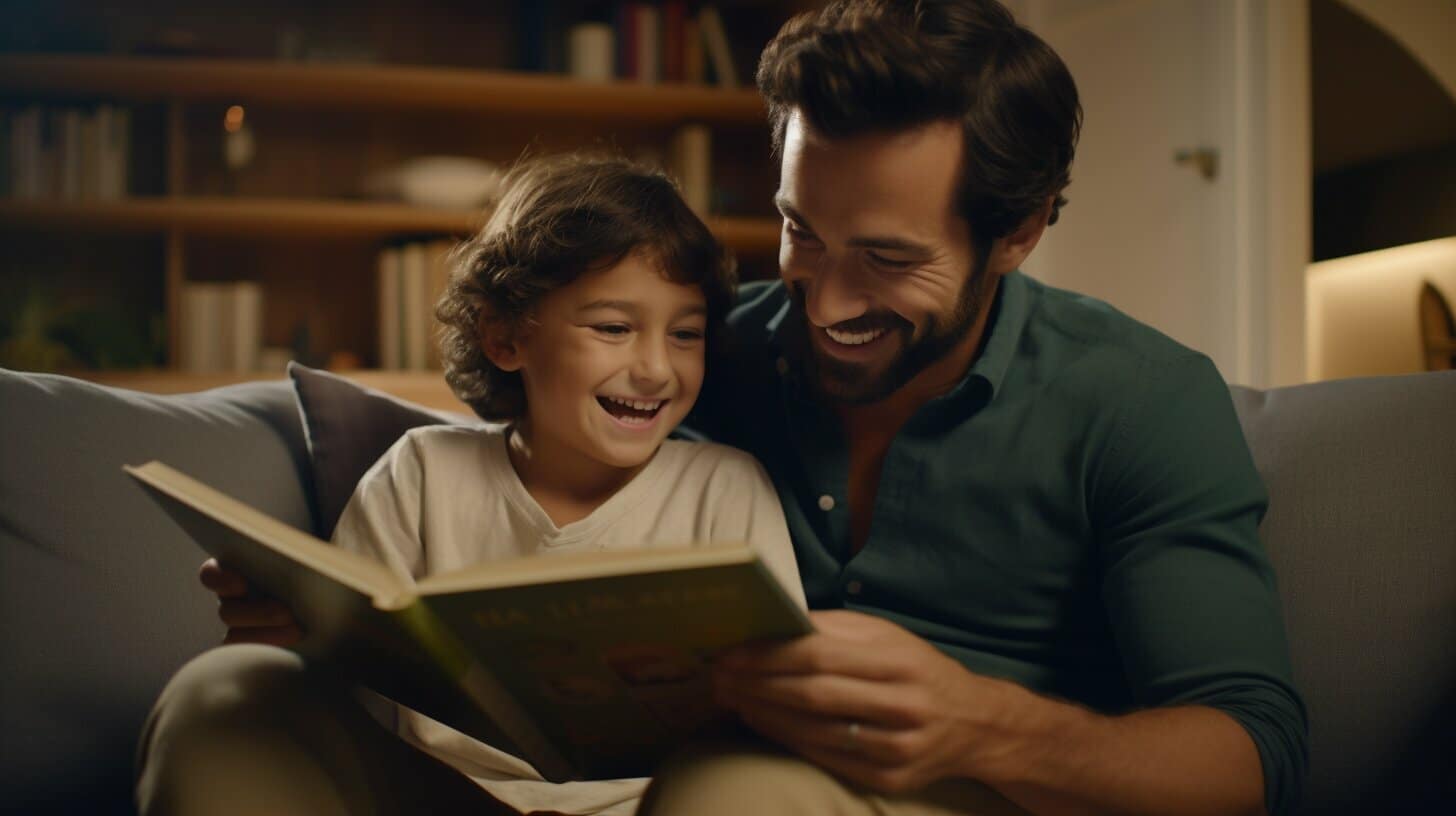Losing a loved one is never easy, and explaining death to a child is particularly challenging. In this guide, you will learn how to talk to a child of a grandparent about death in a way that is honest, supportive, and age-appropriate. By creating a safe and comfortable environment, using easy-to-understand language and concepts, and encouraging questions and expressions of emotions, you can help a child come to terms with this difficult experience.
Key Takeaways:
- Understanding a child’s perception of death is crucial when explaining it to them
- Creating a safe and comfortable environment can help a child express their emotions
- Using age-appropriate language and concepts can make it easier for a child to understand
- Being honest and direct is vital when explaining death to a child
- Encouraging questions and expressions of emotions can foster an open dialogue
- Visual aids and storytelling can be effective tools in helping a child understand and process death
- Acknowledging and validating a child’s emotions is key to providing comfort and support
- Sharing memories and celebrating the grandparent’s life can be a meaningful way to honor their memory
- Providing stability and routine can help a child feel secure during the grieving process
- Additional support, such as counseling services or support groups, may be necessary if a child continues to struggle with grief

Understanding Children’s Perception of Death
As you prepare to explain the concept of death to a child, it is important to understand how they perceive this challenging topic. Children’s understanding of death varies depending on their age, developmental stage, and life experiences. For young children, death may be viewed as temporary or reversible, while older children may have a more concrete understanding of its finality.
It is essential to tailor the conversation to the child’s developmental level and avoid overwhelming them with too much information. Use simple language and concrete examples that they can understand. Avoid using euphemisms or abstract concepts that may confuse them further. Keep in mind that children may have misconceptions about death, such as thinking it is contagious or something that only happens to older people.
Tip: Before starting the conversation, consider reviewing books, videos, or other resources to help you better understand how to approach the topic and what to expect from your child’s reactions.

Remember that children may have a range of emotions when discussing death, including fear, sadness, confusion, and anger. Be prepared to validate their feelings and provide a safe and supportive environment to express themselves. In the next section, we will discuss how to create this type of environment for your child.
Creating a Safe and Comfortable Environment
When discussing death with a child, it is important to create a safe and comfortable environment. Find a quiet and peaceful space where the child feels at ease and free to express their emotions. It may be helpful to schedule a time for the conversation to ensure that you have enough time to address any questions or concerns.
Make sure to keep your tone calm and reassuring, and avoid using euphemisms or confusing explanations. Be willing to answer any difficult questions with honesty and sensitivity.
It is also important to tune in to the child’s emotions and validate their feelings. Let them know that it’s okay to feel sad or confused, and that you are there to support them. Encourage them to ask questions and share their feelings.
If the child is struggling to cope with grief, consider consulting a professional counselor or therapist who has experience working with children.

Remember, creating a safe and comfortable environment is key in helping children understand and process death.
Using Age-Appropriate Language and Concepts
One of the keys to explaining death to a child is using language and concepts that they can understand based on their age and developmental stage. Simply put, you want to avoid using complicated or confusing language that may only serve to further confuse or upset the child.
For younger children, it’s often best to use concrete terms and avoid abstraction. Avoid saying that the grandparent has “gone away” or “gone to sleep,” which may cause confusion and misunderstandings about death. Instead, use clear language such as “The grandparent’s body stopped working and they died.” This can be a difficult conversation, but it’s important to answer questions honestly and truthfully, even if it’s challenging.
Older children may have a better understanding of death, but may still need help processing their emotions. Be prepared to answer more complex questions, but continue to use language that the child can understand. Avoid euphemisms or phrases that may confuse them.
It’s also important to consider the child’s cultural and religious background. Different beliefs and practices may influence how the child perceives and processes death. Be respectful and sensitive to their beliefs and offer support as needed.
Using Age-Appropriate Language and Concepts: Examples
Using age-appropriate language and concepts can be challenging, but it’s an important part of helping children understand death. Here are some examples of age-appropriate language and concepts:
- For young children: “The grandparent’s body stopped working and they died.”
- For older children: “When someone dies, their body stops working and they can’t breathe, eat, or think anymore. It’s like their body has shut down.”
- For children with religious beliefs: “In our religion, we believe that the grandparent has gone to heaven/god/another place after they died. It’s okay to feel sad, but we can take comfort in knowing that they are in a peaceful place now.”

Being Honest and Direct
One of the most important things to keep in mind when explaining death to a child is to be honest and direct. While it may be tempting to use euphemisms or avoid the topic altogether, this can lead to confusion and misunderstandings. Using age-appropriate language and concepts, explain what death is and how it happens in a way that the child can understand.
It’s also important to be prepared for difficult questions, such as “Will I die too?” or “Why did this happen?” Answer these questions as honestly and sensitively as possible, taking into account the child’s developmental stage and level of understanding. Avoid providing too much information at once, and be willing to revisit the conversation as the child grows and matures.

Remember, the goal of explaining death to a child is not to make them feel uncomfortable or scared, but to help them come to terms with a difficult reality. By being honest and direct, you can help your child accept death as a natural part of life and provide them with the support and comfort they need during this difficult time.
Encouraging Questions and Expressions of Emotions
It’s important to create a safe and supportive environment where your child feels comfortable asking questions and expressing their emotions about death. Encourage your child to ask questions and provide honest answers, using age-appropriate language and concepts.
If your child expresses sadness or confusion about their grandparent’s death, validate their emotions and allow them to grieve in their own way. Avoid dismissing or minimizing their feelings, as this can make them feel unsupported or ashamed of their emotions.
Be prepared for difficult questions, such as “What happens after we die?” or “Will I die too?” Avoid confusing or euphemistic explanations, and instead, provide honest and direct answers. For example, you might say, “No one knows for sure what happens after we die, but many people believe that our spirits go to a special place.”
Remember that grief is a natural and normal response to loss, and that everyone experiences it differently. Encourage your child to express their emotions through journaling, art, or other creative outlets. Consider seeking the help of a therapist or grief counselor if your child continues to struggle with their grief.

Using Visual Aids and Storytelling
When it comes to explaining death to a child, visual aids and storytelling can be powerful tools that facilitate understanding and provide comfort.
Using books and illustrations that address the topic can help children process their emotions and gain a better understanding of what is happening. For instance, The Invisible String by Patrice Karst is a great resource that can help children see their connection with their loved ones, even after they pass away.
Providing opportunities for the child to create drawings or write letters to the grandparent can also be helpful in the grieving process.
Storytelling is another effective way to help children understand the concept of death and express their emotions. Sharing personal anecdotes of happy memories with the grandparent can serve as a way to celebrate their life and honor their legacy.

Acknowledging and Validating Their Emotions
It’s essential to acknowledge and validate your child’s emotions when discussing death. Grief can be confusing and overwhelming, and your child may experience a range of emotions such as sadness, anger, confusion, or guilt. It’s essential to remind your child that all of their emotions are valid and that it’s okay to feel them.
One way to do this is to use active listening skills. Listen to your child without interrupting or judging their feelings. Let them know that you understand how difficult this situation is for them and that you’re here to support them through it.
It’s also important to allow your child to grieve in their own way. Some children may want to talk about their feelings, while others may prefer to express themselves through art, music, or play. Remember that there is no right or wrong way to grieve.

If your child is struggling with their emotions, consider seeking the help of a therapist or counselor who specializes in grief counseling for children. They can provide additional support and guidance on how to help your child work through their emotions.
Sharing Memories and Celebrating the Grandparent’s Life
Encourage your child to share their favorite memories of their grandparent and participate in activities that honor their life. This can help them process their grief and feel closer to their loved one.
You can create a memory box or scrapbook where your child can keep mementos like photos, letters, or small items that remind them of their grandparent. You can also make a special meal or dessert that was their grandparent’s favorite or do an activity that they enjoyed doing together, like going for a walk or playing a game.
Another way to celebrate their grandparent’s life is to make a donation to a charity or organization that was important to them. This can be a meaningful way to keep their memory alive and show your child that their grandparent’s legacy lives on.

Remember, every family is different, and there is no right or wrong way to grieve. What matters is that you create a safe and supportive environment for your child to express their emotions and honor their grandparent in their own way.
Providing Stability and Routine
During this difficult time, it’s important to maintain stability and routine in your child’s life. Children thrive on predictability and structure, and it can provide a sense of security as they navigate their emotions.
Try to establish comforting rituals, such as a bedtime routine or weekly family movie night, that your child can look forward to and rely on. Stick to a consistent schedule for meals, playtime, and other activities to help your child feel grounded.
You can also involve your child in creating a special tribute to their grandparent, such as planting a tree or creating a scrapbook of memories. This can provide a sense of continuity and connection to their loved one.

Remember to be patient with yourself as well. It’s natural to feel overwhelmed and unsure of how to best support your child during this time. Seek support from friends, family, or professional resources if needed.
Seeking Additional Support if Needed
If your child continues to struggle with grief beyond what you feel comfortable managing on your own, know that there are resources available to help both your child and your family.
Consider seeking support groups or counseling services specifically designed for children coping with grief. Talking with a mental health professional can provide your child with a safe space to talk about their feelings and help them develop coping mechanisms.
You can also look for books or other resources that are age-appropriate and address the topic of grief. These can help your child feel less alone in their experience and provide them with tools to manage their emotions.
Remember that seeking additional support is a sign of strength, not weakness. By taking steps to provide your child with the help they need, you are showing them that it’s okay to ask for help and that they don’t have to go through this alone.

Conclusion
Dealing with the death of a grandparent can be a challenging experience for a child, but with the right approach, you can help them understand and come to terms with their loss. Remember to:
Communicate Openly
Be honest, direct, and create a safe and supportive environment where your child feels comfortable expressing their emotions. Encourage an open dialogue where they can ask questions and discuss their feelings about death.
Use Age-Appropriate Language and Concepts
Tailor your conversation to the child’s developmental stage and use words and phrases that are appropriate to their age. Provide clear and concise explanations, avoiding euphemisms or confusing language.
Acknowledge Their Emotions and Provide Support
Validate your child’s emotions and allow them to grieve in their own way. Share your own memories of the grandparent and participate in activities that honor their life. Establish comforting rituals and maintain a sense of normalcy in your child’s life to provide a sense of security during the grieving process.
Seek Additional Support if Needed
Remember that there are resources available if your child continues to struggle with grief. Seek support groups, counseling services, or books that can help both your child and your family navigate the grieving process.
You and your child will have a lot of emotions to process after the loss of a grandparent. Remember to be patient and compassionate with yourself and your child as you navigate this difficult period.
FAQ
Q: How do children understand death differently than adults?
A: Children may have different misconceptions about death compared to adults. It is important to tailor the conversation to their developmental stage and address any common misconceptions they may have.
Q: How can I create a safe and comfortable environment for the conversation?
A: Creating a calm and supportive environment where the child feels comfortable expressing their emotions is crucial. Find the right time and place for the conversation to ensure they feel safe and secure.
Q: What language and concepts should I use when discussing death with a child?
A: It is important to use age-appropriate language and concepts that the child can understand. Choose words and phrases that are appropriate for their understanding of death.
Q: How honest should I be about death?
A: Being honest and direct about death is important. Avoid using euphemisms or confusing explanations. Answer difficult questions with sensitivity and honesty.
Q: How can I encourage questions and expressions of emotions from the child?
A: It is important to create an open dialogue where the child feels comfortable asking questions and expressing their feelings about death. Respond to their questions and emotions with understanding and empathy.
Q: Are visual aids and storytelling effective in helping children understand death?
A: Yes, visual aids such as books or drawings can be helpful in helping children understand and process death. There are age-appropriate books available that can facilitate the conversation.
Q: How can I acknowledge and validate the child’s emotions?
A: Validating the child’s emotions and allowing them to grieve in their own way is crucial. Provide comfort and support during this difficult time and assure them that their feelings are valid.
Q: How can I help the child remember and celebrate the grandparent’s life?
A: Encourage the child to share their favorite memories of the grandparent and participate in activities that honor their life. Create meaningful rituals or tributes that allow the child to remember and celebrate their grandparent.
Q: How can I provide stability and routine for the child during the grieving process?
A: Maintaining stability and routine in the child’s life can provide a sense of security during the grieving process. Establish comforting rituals and maintain a sense of normalcy to support their emotional well-being.
Q: What additional support can I seek if my child continues to struggle with grief?
A: If your child continues to struggle with grief, there are resources available such as support groups, counseling services, or books that can help both the child and the family navigate the grieving process.







